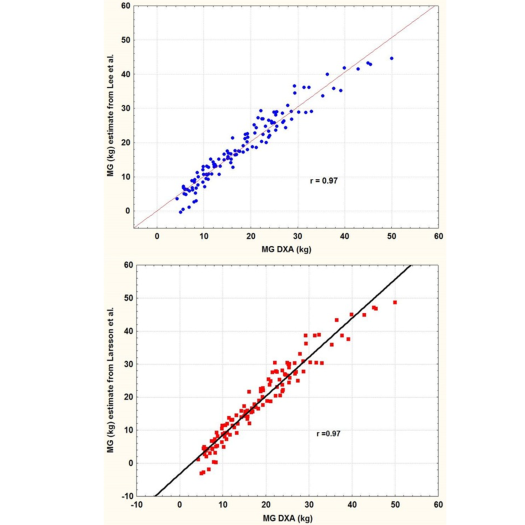Notre collègue publie

Regression between the BF DXA from our sample and the BF estimated using the equation of Lee et al. (top) and Larsson et al. (bottom).


Regression between the BF DXA from our sample and the BF estimated using the equation of Lee et al. (top) and Larsson et al. (bottom).
Fernando Ramirez-Rozzi co-publie dans Plos One
Résumé
Excess fat is a risk factor for many chronic diseases which can lead to premature mortality. Many studies have proposed predictive equations for body fat mass and body fat mass percentage based on anthropometric measures in relation to age and sex. However, the use of these predictive equations on other subject samples may not be relevant. Our objective is to assess whether the predictive equations proposed in the literature are generalizable to any population. We obtained fat mass and fat percentage on a reference population using Absorptiometry DXA. The predictive equations were applied to our population and the mean and individual differences between actual and estimated values were obtained. Predictive equations obtained from a reduced number of subjects have a very high Standard Error of Estimate (>3) and therefore their accuracy is not acceptable. Only the formulae established from a large number of individuals allow the estimation of values whose Standard Error of Estimate is less than 3. These equations, thanks to the large sample size, include a sufficiently large variability in anthropometric measurements covering the diversity of anthropometric values for the same fat value. However, predictive equations based on a large sample size, while exhibiting no current difference in variances, can show a shift in mean values. This mean-shift is the result of differences in DXA devices and needs to be corrected. It means that DXA values from a few individuals in the population under study must be obtained to calculate a corrective factor.